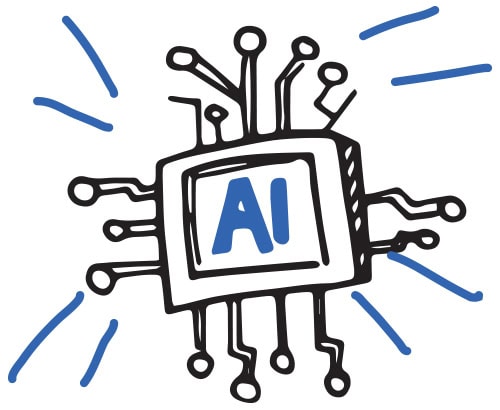DEI Erosion Threatens Safety. Artificial Intelligence May Help Pick Up the Slack.

Rollbacks on diversity, equity, and inclusion (DEI) efforts will exact a heavy cost on safety, compliance, and productivity on American industrial workforces, which grow more diverse every year. AI might help.
Over the past month, executive orders from the Trump administration have rolled back diversity, equity, and inclusion (DEI) efforts across the federal government. Major companies like Amazon, Walmart, and Target soon followed suit, similarly scaling back their own initiatives.
Over time, these rollbacks will exact a heavy cost on safety, compliance, and productivity on American industrial workforces, which grow more diverse every year.
Within Environmental, Health, and Safety (EHS) programs, DEI initiatives and workplace safety operate in tandem with each other, rather than as two separate entities. Diverse teams contribute diverse perspectives, and help organizations identify safety risks from all angles. This has resulted historically in the creation of more effective and inclusive safety cultures.
However, as DEI programs are threatened across the country, EHS leaders must look elsewhere to recreate these safe working cultures. That’s where AI comes in.
As DEI programs disappear, AI may provide a much-needed safety boost due to its ability to automate mundane tasks and offer personalized safety guidance tailored to workers’ roles and experience levels. By integrating AI (even if DEI is temporarily sidelined) more employees will receive the attention and resources they need regardless of background or expertise. In doing so, a safer working environment across the board will result.
The Continued Criticality of DEI
AI is not a long-term replacement for DEI initiatives. Regardless of AI implementation, the loss of DEI initiatives will harm both safety outcomes and compliance efforts.
For marginalized or underrepresented groups, halting DEI programs can discourage speaking up about safety hazards, leading to unreported or overlooked issues. This will affect industries with significant frontline workforces, where open communication is crucial.
Statistics from the Bureau of Labor Statistics show that in 2022, 5,486 American workers died after suffering injuries while working. Of the 5,486, 734 were African Americans, which was up 12.4% from 2021.
Based on sheer numbers, underrepresented groups are, in fact, in need of a voice when it comes to safety. Reduced DEI efforts may create an environment where workers don’t feel as empowered to engage in safety and compliance initiatives, undermining their effectiveness. As a result, company culture will suffer, leading to lower morale and reduced retention.
The AI “Band-Aid” for Workplace Safety
That’s why AI-driven solutions to address workplace challenges and uphold DEI efforts are so critical in today’s political climate. These platforms automate safety and compliance checks, in addition to streamlining risk assessment and ensuring regulatory adherence.
Available to all employees, AI can also support teams by facilitating collaboration and ensuring that safety information is accessible to all, regardless of role. By building a more visible culture of safety, AI tools ensure that all perspectives are valued within safety protocols, not just the majority’s view.
AI is set to redefine EHS, as predictive capabilities and automation tools reshape safety protocols and reinforce compliance. Nevertheless, DEI remains indispensable—not just for legal adherence, but for nurturing a culture that supports all employees and yields stronger outcomes.
In these uncertain times, leaders must weigh the long-term consequences of curtailing DEI on both safety and compliance. Yet, AI offers a strategic avenue to uphold inclusive, high-performing teams despite these challenges. By embracing AI, organizations can future proof their operations and foster a safer, more innovative environment for every worker.
Heather Chapman is Head of Safety & Risk Strategy at Soter, an AI platform that can optimize worker safety while meeting compliance standards set across the warehouse, manufacturing and industrial workforce.

